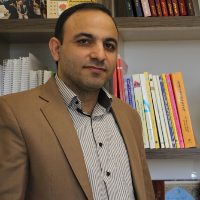Effect of cognitive rehabilitation program based on memory on executive functions and cognitive emotion regulation in children with hearing impairment
Hearing impairment affects all aspect of individual's life, while applying cognitive rehabilitation program based on memory has been associated with effective outcomes. Present study was aimed to determine the effectiveness of cognitive rehabilitation program based on memory on executive functions and cognitive emotion regulation in students with hearing impairment. The present research was a semi-experimental study with pre-test, post-test design and control group. The participants were 26 girl children with hearing impairment from schools in Isfahan city using convenient method. Subjects were divided into experimental and control groups, each group consisting of 13 children. The experimental group received 10 sessions of cognitive rehabilitation program, while the control group did not. The instruments were Nejati cognitive abilities questionnaire (2013) and Garnefski & Kraaij cognitive emotion regulation questionnaire (2006). Data were analyzed by MANCOVA. The results showed that cognitive rehabilitation program had a significant effect on executive functions and cognitive emotion regulation of subjects. According to the findings, cognitive rehabilitation program based on memory improved executive functions and cognitive emotion regulation in students with hearing impairment. So, this program can be used to improve executive functions and cognitive emotion regulation of these students and planning for providing of cognitive rehabilitation program based on memory for them have particular importance.
-
Meta-Analysis of the Effectiveness of Social-Emotional Learning in Students with Hearing Loss
Marzieh Rahmani, *
Empowering Exceptional Children, Summer 2025 -
The Effectiveness of the Lifestyle Program Based on Emotion Regulation on the Emotion Management of Upper Elementary School Students
*, Salar Faramarzi, Mehrshid Danadel
Modern psychological research,


